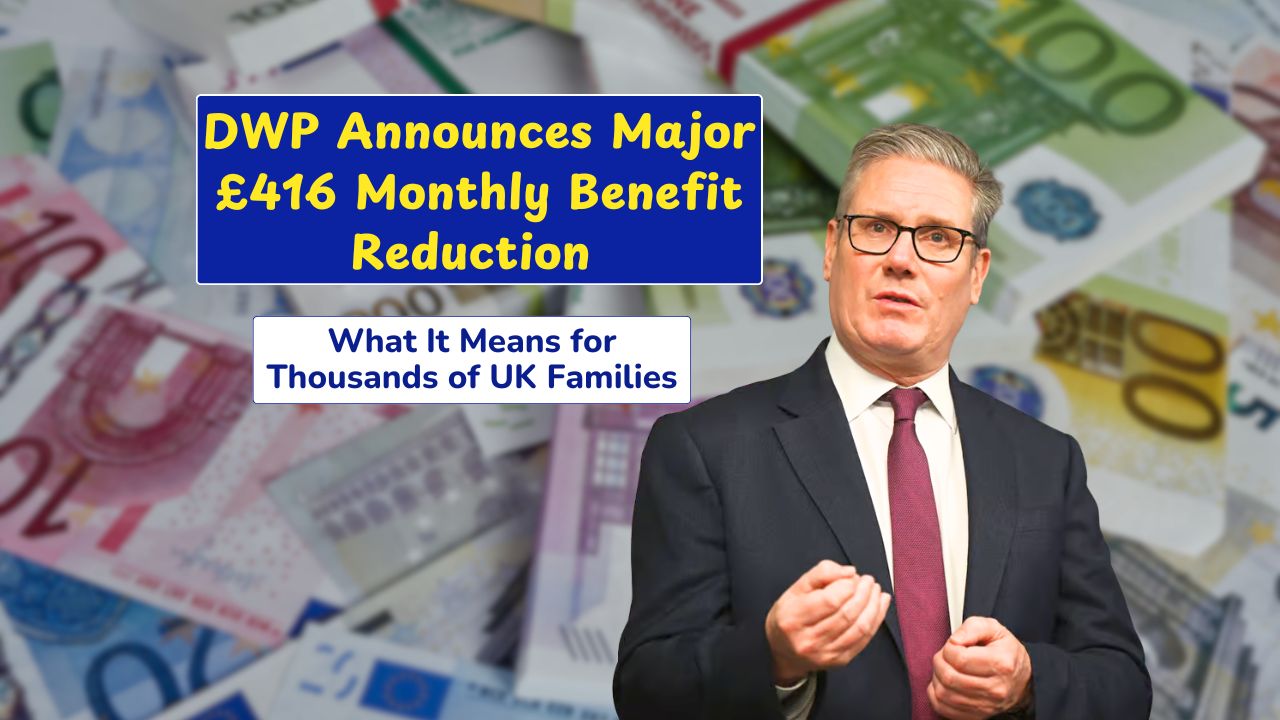In a move that’s raising serious concern across the UK, the Department for Work and Pensions (DWP) has confirmed benefit reductions that could leave some families up to £416 worse off each month.
While the government frames this as part of a long-term plan to reduce welfare spending and get more people into work, critics argue the real-world impact could be devastating—especially for vulnerable groups already barely scraping by.
With major changes rolling out between now and 2028, families depending on Universal Credit, ESA, and Housing Benefit should be prepared. Here’s what you need to know.
Reasons
So, why is the DWP making these cuts now?
The government says the welfare budget is growing too fast. Incapacity-related benefits alone have jumped from £52 billion to £65 billion in just five years.
Officials argue that reducing dependency on benefits, encouraging people to work, and cutting down on fraud are the main goals behind the reform.
But many critics say that reasoning falls flat. A large chunk of benefit recipients are dealing with disabilities, caregiving duties, or a lack of jobs in their area. Simply cutting benefits doesn’t create employment or opportunities.
The DWP is also aiming to prevent fraud and overpayments, but some worry that this will end up punishing genuine claimants who need help the most.
Affected
Not everyone on benefits will be hit equally. The cuts are targeted at specific groups, including:
- Universal Credit recipients in the Work Capability Assessment group
- ESA claimants not classified as unfit for work
- Single-parent households juggling multiple support needs
- Older individuals not yet eligible for state pension but unable to find work
Around 450,000 households will be affected, with the hardest-hit groups losing up to £416 per month.
Exemptions
There are some exemptions in place. You may not be affected if:
- You have a severe disability or terminal illness
- You care for children with complex needs
- You qualify for discretionary support from your local council
Still not sure where you stand? It’s best to speak directly with the DWP or your local authority for clarity.
Stories
This isn’t just about stats—it’s about real people facing very real struggles.
Mary, a single mum in Birmingham, relies on Universal Credit. With a £300 monthly cut, she’s already behind on rent. She wants to work full-time, but childcare costs make it nearly impossible.
David, a disabled veteran on ESA, fears losing his independence. If he loses £416 a month, he’ll have to depend on food banks and charities after years of trying to live on his own.
These are just two examples of how these cuts could push people further into poverty and isolation.
Action
If your benefits have been reduced or you think they might be, here’s what you can do:
- Request a Mandatory Reconsideration: You have 1 month to ask the DWP to review their decision.
- Appeal to a Tribunal: If the reconsideration fails, take your case to an independent panel.
- Get Advice: Charities like Citizens Advice, Turn2Us, and Scope offer free help for appeals and benefit guidance.
These steps could help you get some or all of your benefits restored, or at least explain your options.
Support
Even if your main benefits are reduced, you may still qualify for other types of help:
- Emergency Local Council Aid: Food, rent, and heating assistance in crisis situations
- Household Support Fund: Food vouchers, bill payments, and essential needs funded by local councils
- Food Banks: The Trussell Trust and others offer free food and meals
- Debt Help: StepChange and National Debtline can help you budget better and deal with financial stress
Coping
Here are some simple ways to manage the money you do have:
- Prioritise rent, food, and utilities first
- Make a weekly budget and stick to it
- Use comparison sites to save on bills and insurance
- Look into part-time or remote side jobs for extra income
- Apply for local grants from councils or charities
Even small savings or one-off payments can help during this transition.
Impact
The long-term effects of these changes could be serious. Experts are warning of:
- Higher poverty rates as more families fall behind
- More pressure on local councils and charities
- Rising demand for housing and mental health services
- Possible political pushback if public dissatisfaction grows
The government hopes these reforms will save money and increase employment—but for now, they’re asking struggling families to do more with less.
FAQs
How much could I lose monthly?
Some families may lose up to £416 each month.
Who is exempt from the benefit cuts?
People with severe disabilities or terminal illness may be exempt.
Can I appeal the DWP decision?
Yes, you can request a Mandatory Reconsideration and appeal.
What other help is available?
You can get aid from councils, food banks, and support funds.
Are all benefits being reduced?
No, only specific groups and situations are targeted.









